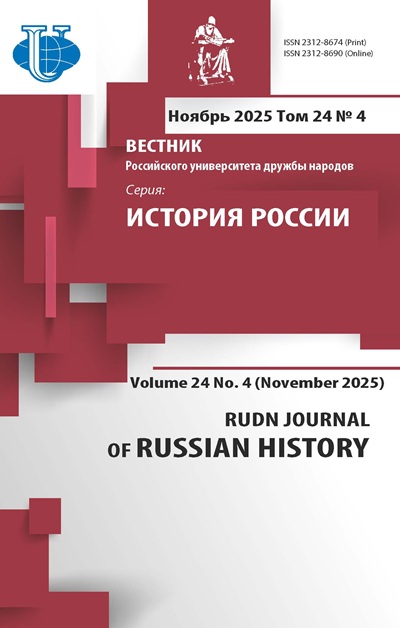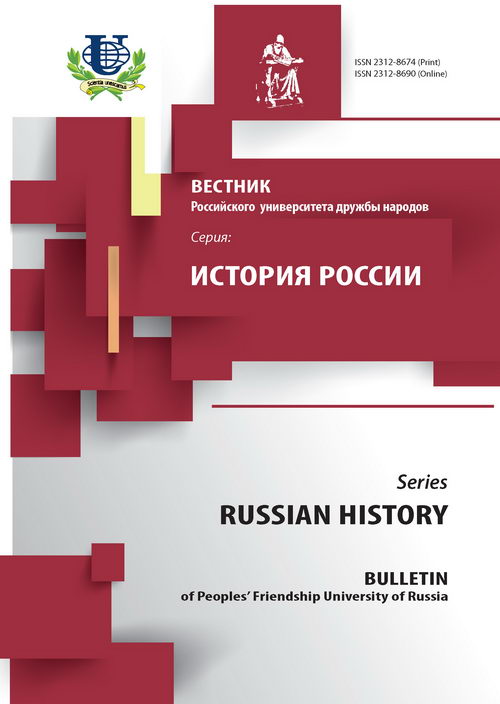ОТГОЛОСКИ «ТЕОРИИ МАЛЫХ ДЕЛ» В НАЧАЛЕ ХХ В. (НА ПРИМЕРЕ ПОПЕЧИТЕЛЬСКОЙ ДЕЯТЕЛЬНОСТИ Г.П. САЗОНОВА)
- Авторы: Зверев В.В.1
-
Учреждения:
- Российская академия народного хозяйства и государственной службы при Президенте Российской Федерации
- Выпуск: Том 15, № 1 (2016)
- Страницы: 29-38
- Раздел: СТАТЬИ
- URL: https://journals.rudn.ru/russian-history/article/view/4215
- ID: 4215
Цитировать
Полный текст
Аннотация
Статья посвящена изучению деятельности Г.П. Сазонова, исполнявшего в начале ХХ в. функции попечителя Петропавловской больницы г. Санкт-Петербурга. Автор рассматривает предпринятые им меры по улучшению работы этого лечебного заведения как реализацию идей популярной в 1890-е гг. «теории малых дел».
Об авторах
Василий Васильевич Зверев
Российская академия народного хозяйства и государственной службы при Президенте Российской Федерации
Email: v.v.zverev@bk.ru
Кафедра истории российской государственности
Список литературы
- Сазонов Г.П. Городская Петропавловская больница и городские родильные приюты. Отчет попечителя городской Петропавловской больницы и городских родильных приютов. СПб., 1913. С. 5, 6.
Дополнительные файлы















